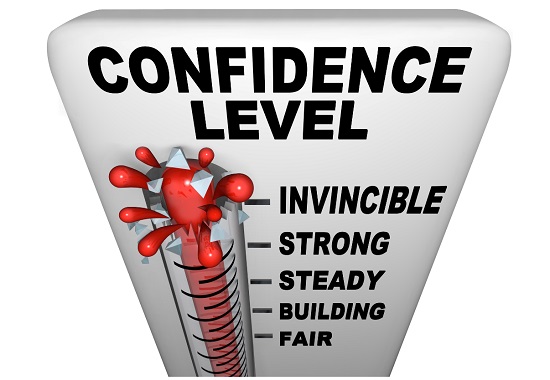7 Key Tactics To Be A Leader Like A Pro
Workers in Singapore are quiet by nature. We tend to be less vocal and not stand out. It is a common culture that the quiet ones tend to follow those who are more ‘vocal’ at work. Being an introvert, how then do one become an effective leader?
There are thousands of online resources, books, articles and blogs found all over the internet on leadership skills. But the question is which one is the best? Well, to be fair, all of them are.
Leadership is a fluid term defined differently by each individual. If you are to be a leader or better still, a competent and a great leader, you should spend some time exploring every concept.
However, while one individual may differ in their definitions of what makes a great leader, many are bound to share similar qualities or traits that they will find in common.
With there being so many resources easily accessible in this age of technology, one can easily obtain the necessary information on what it takes to be a great leader.
But without implementing these skills and strategies, one may end up falling short. In order to be a great leader, first an individual needs to learn how to effectively apply practical and logical strategies together with their innate skills and values to guide themselves and those they aspire to lead.
What Makes A Great Leader?
We have all heard the saying “Great leaders were born and not made.” Perhaps this may have been relevant in the past if you were to look into the majority of the population that were of lower socio-economic and educational status.
For those that were fortunate enough to be born into a wealthy family, they simply had an advantage and better opportunities to take up leadership positions.
However in the present day, there are sure to be people who have a natural talent in leading others, but for many it is a learned skill that they develop along the way.
While there are professionals who suggest a logical approach or formula to achieving proficient leadership, learning these skills on its own doesn’t necessarily make a person a great leader.
It’s when combined with personal characteristics that were learned and instilled in early childhood. Because there are some traits that can’t be taught but only learned through experience.

In one way or another, we are leaders to someone out there. Without even knowing, we may have influenced others directly or indirectly. Be it with our family, friends or even strangers.
Even without holding the title of a leader, through learned skills, innate characteristics and experiences, one can always influence others, and hopefully in a positive way.
Good leaders demonstrate many learned leadership skills. Great leaders demonstrate both learned skills and innate characteristics that enable them to lead well.
1. Leading Through Example
Great leaders need to develop self-confidence and self-empowerment. To do so, he or she should perform an analysis on themselves and most importantly to do in an honest manner.

This requires being open, yet critical while assessing what learned skills must be highlighted for improvement and what innate characteristics he or she may or may not yet possess. Being aware of individual strengths and weaknesses will help identify the abilities that should be maintained and those that need to be worked on.
This in turn is the first step to self-empowerment. As such, by empowering yourself, you become a catalyst for you to empower others. This is what it means to lead by example.
2. Effective Decision Making
Great leaders must be able to make reasonable and effective decisions with confidence and clarity. Indecisiveness and poor decision making leads to loss of credibility and lack of acceptance as a leader.
While one may not possess the wisdom of Solomon, learning techniques for facilitation are useful in this process.
A clear understanding of the problem is key to decision making. Once the problem is apparent, goals may be set through identifying specific goals, ensure they are measurable and attainable, establish accountability, and set an appropriate timeline.
Various facilitation techniques can then be applied to create new ideas (eg, brainstorming), collect supporting data and collate them into a workable process.
These facilitation techniques can be applied in many instances in a workplace where critical decision making is required; addressing quality assurance concerns, implementing new technologies, building a new department section, adding additional staff, and creating or expanding services.
3. Team Building
Great leaders must build a reliable team that can function with minimal direction and are willing to be held accountable for their actions. Building a functional team requires a diverse mix of skills, personalities, and demographics.
As author and management expert Kenneth Blanchard said, “None of us is as smart as all of us.” A team that is essentially made up of clones of the team leader limits opportunities to develop new ideas and results in failure.

4. Strategic Planning
Great leaders must be good strategic planners. Without direction, they have little hope of growth and advancement, both personally and professionally. Leaders must be willing to challenge the status quo, ask how and why, and be forward thinking.
A leader with a strategic plan establishes the path and then ensures that it is followed. Great leaders also look for opportunities that may be the genesis of a strategic plan through creative, critical thinking.
In the laboratory, these opportunities may come by way of involving coworkers, networking with other laboratory leaders, attending professional meetings, and staying abreast of current healthcare affairs.
5. Effective Communication
Great leaders must cultivate excellent communication skills, both oral and written. Most of a leader’s success is reflected in communication skills. Poorly written documents show lack of effort or education.
Similarly, a speaker whose presentation is unfocused, unorganized, and, worse, inaccurate, will exude a lack of leadership skills. Learning how to communicate well will instill trust and credibility, and create a successful work environment.
6. Professional Development
Great leaders never stop learning. To ignore continuing education opportunities results in stale ideas, outdated practices, and the loss of respect from those who follow you. The skills such as time management or communication and crisis management, generally can be learned.

However great leaders must be proficient in leadership, managerial, and technical skills, in addition to certain less didactic and more intrinsic leadership skills such as honesty, open mindedness and self-control. These are the characteristics that people want to see in their leaders.
Key to this process is recognizing one’s own abilities and skills, as well as those that make a leader great, rather than good. To find an example of the kind of leadership qualities one wants to emulate, one should reflect on experiences in which another person’s intervention made a positive impact on his or her life.
Learning from mentors, attending continuing education programs, and reviewing the current literature are ways to find examples of good leadership.
7. Coaching and Mentoring
Great leaders will find opportunities to coach and mentor others. Coaching helps others to solve problems for themselves, a tactic that is often situational, as it includes providing assistance in situations in real time.
Mentoring, on the other hand, is more of a strategic partnership developed over time, during which the mentor offers advice in advancing one’s career or education to contribute to the individual’s professional growth.
A coaching or mentoring relationship should not be limited to just the inexperienced, but should be part of everyone’s lifelong professional development.
Conclusion
Those who master these seven key areas are in a position to enhance their effectiveness as a leader both in and out of the corporate world. But to become a great leader requires certain basic characteristics; a lack of these would limit whether others assess him or her as competent.
By recognizing which characteristics are lacking, one can work towards embracing his or her weaknesses and develop them into assets.
Becoming a great leader is an evolutionary process, not a revolutionary one. It is a lifetime process of learning certain skills and enhancing innate characteristics that define a great leader. Understanding and becoming the kind of leader you would want to follow – is the ultimate goal.


Recent Comments